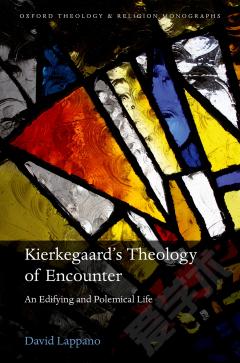Being and Existence in Kierkegaard's Pseudonymous Works
These two interesting volumes try to work out different (though sometimes overlapping) interpretations of Kierkegaard's pseudonymous works. Both authors eschew the biographical-psychological and historical-comparative approach to Kierkegaard's works, in favor of what Taylor labels the descriptive-thematic approach. Taylor presents the basic argument for doing this. Though he admits that the biographical-psychological approach has dominated the secondary literature about Kierkegaard, Taylor criticizes it for focusing attention on the author and his personal problems as opposed to concentrating on the works themselves. (Of course the problem at issue is whether one can separate the author from his works without losing some degree of why he wrote what he did, and what he intended when he wrote his works.) The historical-comparative approach is criticized for distorting Kierkegaard's texts and theories by seeing them through Hegel's or someone else's eyes. The examination of the methodological approaches, especially with somebody like Kierkegaard, could lead us too far afield. So, we shall just report that both of the works being discussed in this review develop their case through the descriptive-thematic approach. Of the two, Elrod's book is the more startling. He declares at the outset that he is going to show that there is an ontological system in all of Kierkegaard's pseudonymous writings. This claim is first put in the form of a two-fold effort going on in Kierkegaard's work (1) "to point out to his reader the different types of existence possibilities open to man," and (2) "on the other hand he was concerned with carrying out the more fundamental philosophical task of ontologically accounting for human existence" (p. 4). The reader immediately sees Kierkegaard turning over in his grave at the idea that he was an ontologist. After what we have learned from the Concluding Unscientific Postscript and the Philosophical Fragments, Kierkegaard had strongly attacked the possibility of having a philosophical system that related to the human situation. The activity of the Hegelian and other systematizers was "the comedy of the higher lunacy." Elrod realizes his claim sounds odd and goes against the grain of the bulk of Kierkegaard scholarship. He restates it in a little less controversial form as "Then, in speaking of a system in Kierkegaard's thought I mean at best only the conceptual clarification of these structures which, on the one hand, makes these existential phenomena possible and on the other hand, binds them into an explicit unity of relations" (pp. 16-17). Elrod does a very careful job of lining up his textual evidence and building up an ontological picture of the stages in existence. In many cases one can think of texts that do not fit Elrod's construction. But just the same, a Coubter like myself who has been inclined to put Kierkegaard in the classical sceptical tradition as a philosopher, and in the fideistic camp as a theologian,,
{{comment.content}}








 京公网安备 11010802027623号
京公网安备 11010802027623号